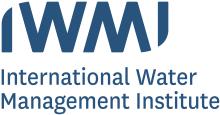Resource information
This project aims to identify the risks and benefits associated with the use of wastewater in urban and peri-urban fodder and vegetable cropping systems in India and Pakistan, where wastewater is largely untreated due to lack of public finance. Two mega-cities (Faisalabad, Pakistan and Hyderabad, India, with large untreated wastewater irrigation areas have been selected a) for comparative purposes and b) to develop and promote country-specific risk mitigation options. With a particular focus on food safety, livelihoods and livestock, the research will combine field and laboratory methods and structured interactions with producers, consumers, and authorities (urban planning, public health and water management). The goal of the project is to improve health and safeguard wastewater-dependent livelihoods of resource-poor urban and peri-urban farmers and consumers in developing countries. This overlaps with IWMI?s mission to improve water and land resources management for food, livelihoods and nature. The project?s purpose is to develop and promote the uptake of a set of risk mitigation options based on a comprehensive assessment of risks and benefits associated with wastewater irrigation in Hyderabad (India) and Faisalabad (Pakistan). The project will enable the uptake of the recommendations in two countries with large wastewater-irrigated areas and different political - institutional environments.



